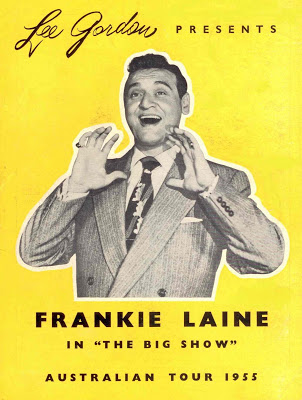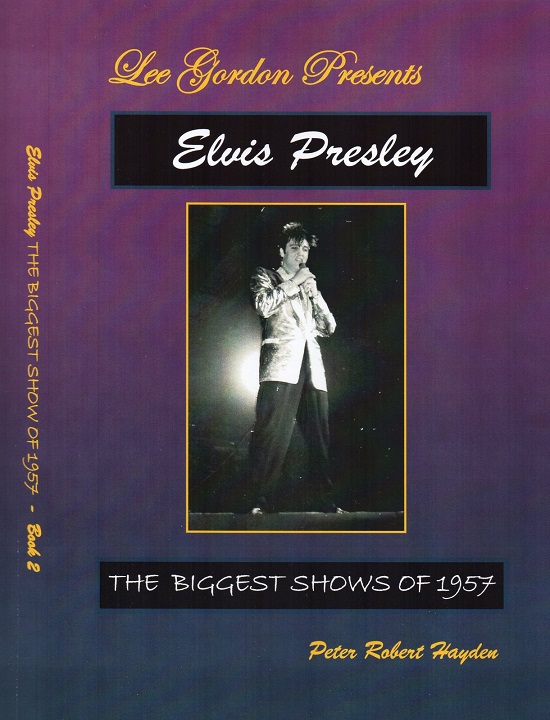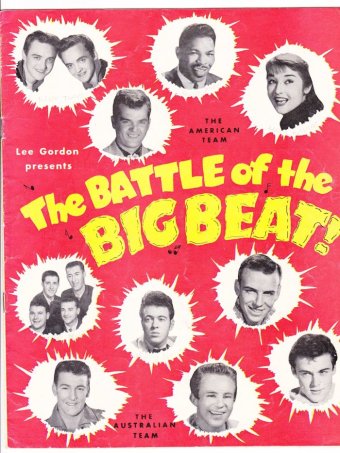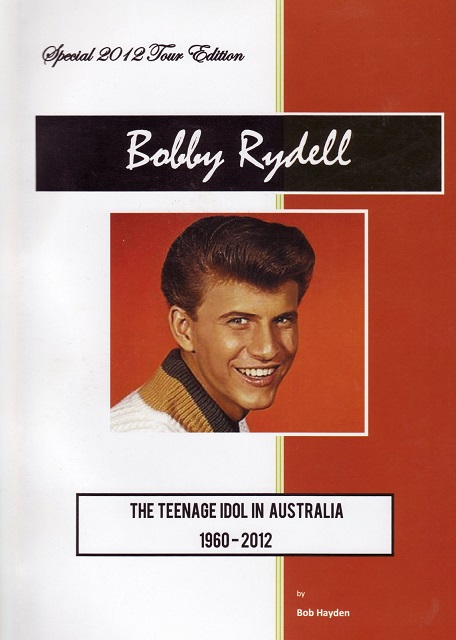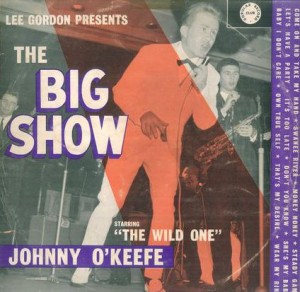 |
 |

Interview conducted June 2015 Introduction: Noted Elvis and rock 'n' roll researcher/author, Bob Hayden, recently sat down with EIN's Nigel Patterson to talk about his life, his critically acclaimed books about Elvis and the heyday of Australian rock 'n' roll. In a fascinating interview Bob:
Bob's candid interview will appeal to not only Elvis fans but will also conjure up many pleasant memories for those old enough to remember the golden days of Australian rock 'n' roll.
EIN: Bob, many thanks for talking to us today. First off, who is Bob Hayden? BH: Hi Nigel, nice to talk to you as usual. Gee we do go back a long way as they say, and it has been sometime since we caught up with each other. Who is Bob Hayden! I am just an average Australian who was born in Launceston Tasmania in the 1940’s. I was always interested in sports as a young fellow, but my other great interest was rock and roll from the 50’s period, and this included the music of Elvis Presley first and foremost. As employment was very limited in Tasmania, I decided to join the Military and make a career out of serving my country. During all my travels the music was never far away and always part of me, no matter where I served in Australia. Elvis and his music was there big time and still is to this very day. When I retired from the Military, we moved back to the country and there we raised our three boys, and today Christine and I have moved from the farm into the town environment, which is still pretty close to open spaces and heaps of open paddocks and beautiful countryside to spend the rest of our lives. EIN: What was the inspiration for you researching and writing Lee Gordon Presents Elvis Presley.......The Biggest Shows of 1957 and why as a trilogy? BH: It came to me whilst I was travelling around the Eastern states of Australia during my time in the Military that I thought of the idea that someone had to research and collate all the best rock and roll shows that Lee Gordon had brought to this country under the banner of “THE BIG SHOWS”. Aside from that I knew that Lee Gordon was involved with Elvis and the Colonel on various occasions, but nothing had been done about preserving all that music heritage within Australia. So one day I wrote to the late Alan Heffernan and asked if we could talk about Lee, Elvis and to a lesser extent The Colonel. Alan agreed, and over many years we corresponded by letters and the odd phone call. I gathered all the information and stored it until I retired in 1987 in old military trunks with all the other Elvis material I had collected of that period.
Elvis and Joan Adams, Las Vegas, Oct 1957 EIN: How long has it taken to research and write the trilogy? BH: How long, many years, too many to be honest Nigel. I waited till our boys had grown up and left home, getting married etc. Then one winter day I said to my wife, I must start and type up that story of “Elvis and Lee Gordon”, and put it into book format. I had so much research material, that it took me a long time to put it into order as they say, but the hardest and longest parts were getting all the stories reconfirmed by the people who told me their story. The introduction of the internet service to the regional areas of New South Wales took a little longer than in the city, but when it did arrive I have used it to the maximum effect since. EIN: As noted in EIN’s reviews of the first two volumes you have managed to find a wealth of archival material from 1957 (particularly impressive given the material was published 58 years ago!). The press clippings, etc, add great balance to the narrative and visual elements in your books and also provide a wonderful sense of the controversy and hysteria surrounding “Elvis the Pelvis”. Headlines such as ‘Elvis’ Entrance would have Scared Savages’ and ‘Suits of Armour suggested during Presley Ticket Sales’ are evocative of the furore Elvis caused. How did you source the archival material? BH: Just plain hard work, researching and sleuthing to be honest. A lot of hand written letters to start with to people from the various worldwide Elvis fan clubs of which you and I became members for sure. One person from Queensland became good friend of mine, and he helped me in the latter parts as he could find things on the internet I only dreamt about, especially in local library research. You will hear more about this fellow very soon Nigel, as he is doing a project which he asked me to be involved in, and it will soon become available for all worldwide Elvis fans. I have told him about EIN and yourself in particular, and he is really looking forward to getting to know you. It has been the best project I have worked on for many a year. EIN: Similarly, the books include hundreds of rare photos from 1957. How difficult was it to assemble so many visuals? BH: Not too hard at all really Nigel. Fans from the states who took pictures on their little brownie and flash cameras always wanted to share (especially when you told them you were from Australia) which was just terrific. The professional photographers were a bit harder to deal with, but the libraries all around the states were wonderful. When they got a letter (request) from Australia they were always keen to help me and as you can tell by the internet today, many of the photographs are starting to appear so often it makes things a little sad, because many people claim the photographs are theirs when we all know they are not. I own a number of photographs, but can honestly say there are many I wish I could own. I could not use some of them all Nigel 9because I could not obtain copyright), but I do have some poorer copies of photographs which have not been seen since 1957!, but I will not be adding them to book 3 as I do not own the copyright as well.
EIN: For any researcher/author based in Australia it can be difficult to establish substantive contact with people based around 15,000 kilometres away. How did you identify and obtain the “fan recollections” that add appreciably to the impact of the narrative component of the trilogy? BH: Nigel, like I said before, by hand written letters to start with and then via the internet which really has made thing a lot easier. But I still like to get a second confirmation about all I had written in the books.
BH: Without doubt contacting, dealing and meeting with Alan and Val Heffernan for starters. They were such delightful people, with no airs or graces, just great everyday Australians, who in my opinion have never been truly applauded for their contribution to the Australian music scene. Next would have to be the Elvis fans from all around the world including Australia to a lesser extent. EIN: As EIN noted in our review, one of the impressive aspects of your latest books is your ability to have uncovered previously unknown information about the Elvis story. What are you most proud of in this respect? BH: Well, everything in general and not one thing in particular. Bringing to fruition the 1957 live shows which would never have been possible BUT for Lee Gordon in no small way. Why this period has not been researched and written more about is beyond me. This was to be the last time Elvis would ever be so easy to access for the rest of his life. Our mutual friend Alan Hanson did try to rectify a few years back with his superb book “The Final Fifties Concerts”. Alan in turn wrote the “Foreword” to my revised book titled “Elvis Presley’s Gold Cadillac Tour of Australasia 1968-69”.
EIN: Bob, 1954-55 represented Elvis’ as a rising national music star in the US. 1956-57 reflects his explosion on not only the national scene in the US but also a internationally. In this respect there are numerous books on Elvis’ impact in 1956 but very few focusing on his career in 1957. Why do you think this is the case? BH: Because no one in America really cared about Elvis and his career after 1957 for a few years. Yes, he was a money earner, but his live performances during 1957 were just amazing and most of all exciting for the youth of that time. If Lee Gordon had his way and Elvis was not committed to those movies in 1957, Lee would have had more tours arranged and booked everywhere except for overseas which included his main aim “Australia”. The Colonel liked what Lee did in regards the tours, and because the movies made time short, he held Lee at arm’s length for additional shows. Later the Colonel would admit he should have done more live shows in 1957 because Lee was the best in the business worldwide at that time. No promoter could equal what Lee achieved in a space of few years. He only missed out on touring two big names, Elvis and Bing Crosby. Bing would not travel to Australia (by plane) no matter how much Lee kept offering him. EIN: In the context of 1956 being Elvis’ breakout year how important is 1957 in the Elvis story? BH: To me Nigel, it was the most important year of his early touring career. They knew Elvis would be going into the Army by mid to late 1957/early 1958, but if not for the intrusion of Lee Gordon and challenging the Colonel about Elvis touring, Elvis would have performed only one live show in 1957, and that was in Tupelo, a promise from 1956 to return and perform in his home town. I think the movies may have saved him a little bit of respite, but the live shows made him a “Super Star” big time. EIN: During your research did you get any sense of how Elvis felt, after three years of being on-the-road, about touring? Was he becoming jaded with the constant travel, unfriendly hotel rooms and absences from “home” or still enjoying the chemistry he felt with his audiences? BH: No, in all my researching and interviews with many people close to Elvis at that time he was enjoying himself no end. Yes, during the long trips got people edgy at times, but Elvis knew what he wanted and on many occasions when talking to Lee without the Colonel around he asked “when are we touring again Mr Gordon”. I think Elvis never lost the chemistry he enjoyed with his audiences during his entire career. If he had lost anything Lee would not have bothered trying to tour Elvis after his release from Service duty.
BH: Never met Lee, Nigel, he sadly passed away in 1963 in the UK, and his ashes were returned to the states by his wife. If I ever had the chance I think it would have been the thrill of a lifetime. He was such a remarkable person and promoter for his time. We owe him a big debt in this country. EIN: Alan must have told you many great stories about his time working with Lee. Can you share one or two with our readers. BH: Yes, Alan told me many stories, good and funny, but I promised he and his wife I would not write about any of them and that was a private wish as well, which I want to respect and honour. EIN: Bob, readers will be appreciative that you have used durable heavy, coated paper stock in printing the books. What made you decide to do this, it must have been quite expensive? BH: It was very easy really Nigel. At first I wanted to publish the book as one volume with a hardbound cover, but in Australia that was too expensive. So I decided to use nice glossy paper and publish the book in three volumes at a more reasonable price per volume. Also I wanted to have the books locally printed as the local printer has been very helpful doing a big job for me.
EIN: The final volume in the trilogy is essentially a visual only release. What can fans expect to see in it? BH: Photographs and more photographs and a few little surprises. Many of the photographs I collected long before the internet became the norm to sell and buy anything and enhance etc.. EIN: When do you expect to release Book 3? BH: Most likely before our coming summer, in a few months. I still have to decide which photrographs to include and which ones to exclude, and that will be very challenging let me tell you. EIN: Sales of the first two volumes have been very strong. Do you have many copies left and what are the possibilities of further printings? BH: Nigel, both copies have been sold out now, which I was extremely happy with. EIN: EIN understands you are a key contributor to Erik Lorentzen’s upcoming book on Elvis in 1957, A Touch of Gold. What can you tell us about your involvement with the Lorentzen book? BH: I sent Erik copies of my book and advised him that he could use whatever he wished. That is the way I work as you very well know. Erik has advised me what he liked and I am really looking forward to getting a copy when it is released. Erik was very complimentary about my work and effort with the two volumes to date which was nice to hear.
EIN: Bob, you have also written a number of other books about Elvis and other rock ‘n’ roll stars. Please tell us about your book on the teen idol whose hits include Wild One, Volare and Swingin’ School.......Bobby Rydell. BH: Well, this was a chance I did not want to miss Nigel. A friend of mine from Melbourne, Ian B Allen from Dynamic Promotions, started touring overseas acts around Australia and I asked him he could introduce me to Bobby Rydell during his 2010 tour of this country. He did and after I met Bobby Rydell decided I wanted to do something for him and his continued tours of our country. I produced the book with the help of my friend from Queensland and had it ready and nearly sold out for Bobby’s 2012 of Australia. Unfortunately Bobby took sick and had to have major life saving surgery, so his tour was cancelled. Bobby recovered and came to Australia in 2014, so I had the book revised (new cover) and that sold out prior to the tour starting which was great. I still get requests for a copy, and if and when Bobby returns to Australia I may repress the book once again. EIN: EIN understands Bobby still tours today although he had a major health scare in 2012. What can you tell us about this? BH: Nigel, Bobby had done amazing well after a number of serious operations and organ transplants. His operations have been well covered by the media worldwide and can be read fully via the internet, and also on his website: - www.bobbyrydell.com
EIN: Bobby was a popular name for singers in the rock ‘n’ roll era. If you had to choose between Bobby Darin, Bobby Vinton, Bobby Vee or Bobby Rydell who would you pick and why? BH: Without being mean to the other entertainers who are all great in their own special way, Bobby Darin by a country mile. He was the ultimate entertainer and cabaret performer. Many years ago I interviewed the Australian rocker Merv Benton from Melbourne, and we talked about the performers he saw, and I asked him about Bobby Darin. He recalled how he saw Bobby Darin perform in Sydney, and during his show he played every instrument in the orchestra, danced sang and was brilliant. Even to this day Bobby Rydell honours his friend during his live shows with a tribute to Bobby Darin. Enough written and said. EIN: There are many long-time rock ‘n’ roll fans who visit the EIN site. As a key figure for many years in Australian rock ‘n’ roll circles and someone who experienced Australian rock ‘n’ roll in its heyday what are some of your greatest memories of that time? BH: Nigel, that is a hard question, because I have seen many (like yourself). But I will pick a few for you in no order. Overseas performers would have to be Dion (De Mucci), Freddie Fender, Chuck Berry. Jerry Lee Lewis, Katie Webster, Johnnie Ray, the Everly Brothers, Roy Orbison (that great concert in Canberra after his heart operation) and Crash Craddock. The best live show I have seen would have been Shakin Steven’s at the Canberra theatre when he became a popular rocker! His show was just pure entertainment. Australian performers, Col Joye, Warren Williams, Barry Stanton, Lonnie Lee, Judy Stone, Johnny Chester and a good friend Merv Benton from Melbourne. Merv would have been the most popular rocker from the Melbourne scene, even though Johnny Chester was the first to hit the bigtime. I never saw Johnny O’Keefe live on stage but saw him perform live on TV, and met him in Melbourne when he came an unveiled the Elvis Statue and Grotto at Melbourne Cemetery a year after Elvis passed away. He was different let me tell you, but nice and friendly.
BH: Nigel, I have so many projects in the planning stage it is not funny. One of them I can tell you a little about is another project on Lee Gordon and his Big Shows in Australia. That is all I can say at the moment but it will be a big project when finished, and it can only be completed with the help of many Australian rock and roll collectors and friends I have made over the many years I have been researching and writing about for various magazines and clubs. EIN: Bob before we say "Bob has left the building", is there anything else you would like to say to our readers? BH: Nigel, I would like to say THANKS for all your help with my projects and keep up the good work at EIN. I hope that your readers enjoy many more good things on the site well into the future. We all know this must end one day BUT for now we will keep on ‘DREAMIN’, just like we have been since the mid-fifties! Take care and all the best to you and your readers. 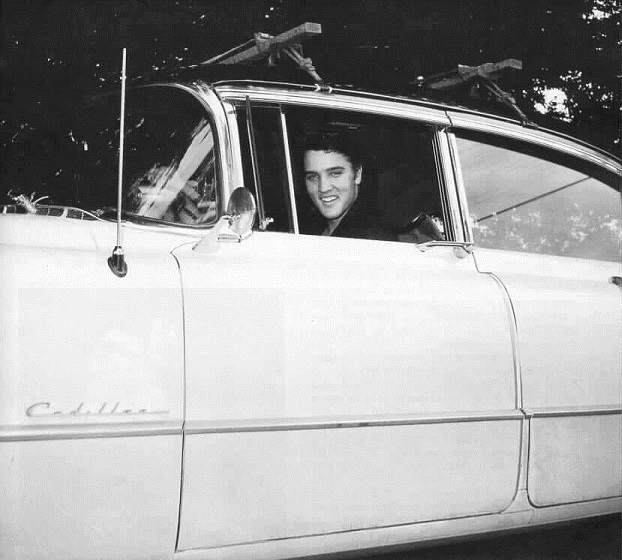 Bob Hayden is also the author of the critically acclaimed and "sold out" books: (click each link to read EIN's reviews) Lee Gordon Presents Elvis Presley - The Biggest Shows of 1957 Book 1 Lee Gordon Presents Elvis Presley - The Biggest Shows of 1957 Book 2 Elvis Presley’s GOLD Cadillac Tour of AUSTRALASIA 1968-69 and...... Special 2012 Tour Edition Bobby Rydell The Teenage Idol in Australia
EIN Website content © Copyright the Elvis Information Network.
|
|
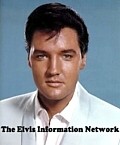
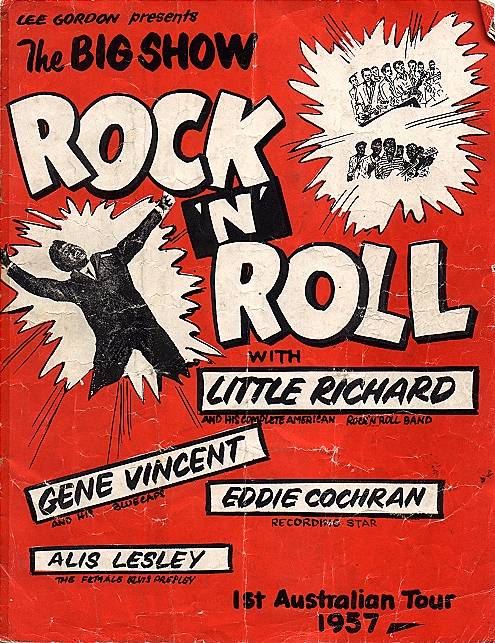
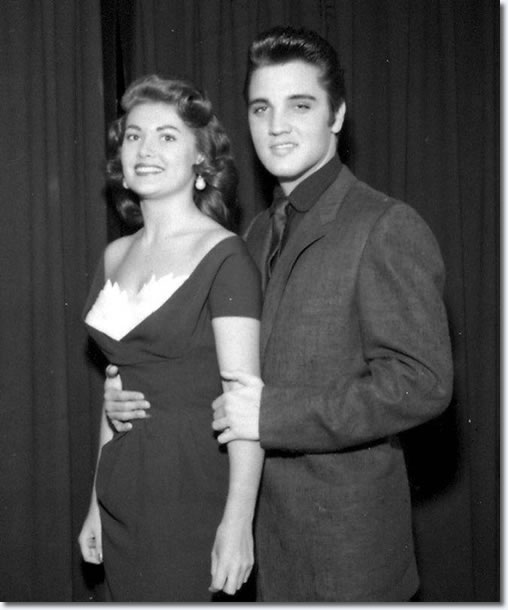
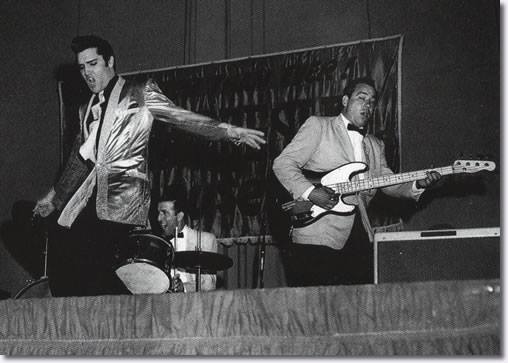
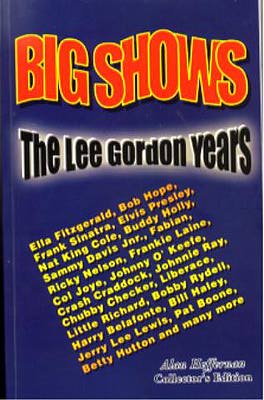
.jpg)
